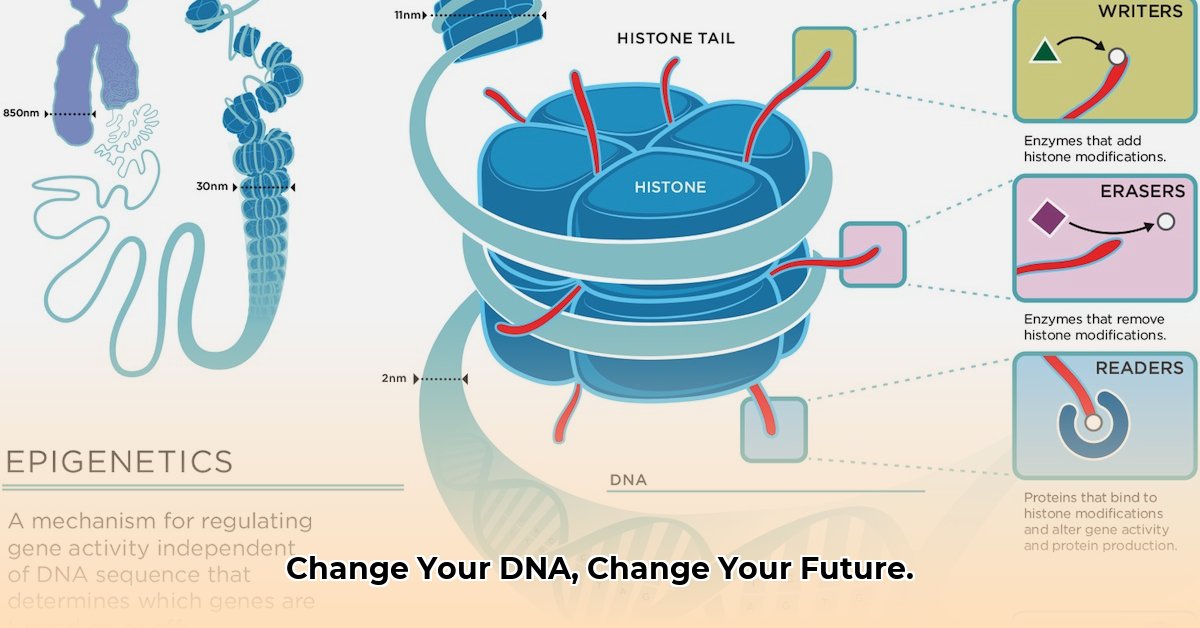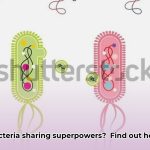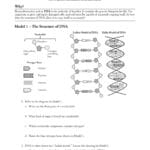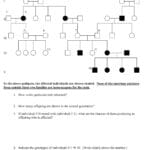Ever wonder if your choices today could impact your grandkids’ health? It’s not just about good genes; it’s about epigenetics! This amazing field shows how your lifestyle – what you eat, how you handle stress, even the air you breathe – can actually change how your genes work, influencing not only you but also your kids and grandkids. Think of it like this: your genes are the hardware, but epigenetics is the software – and you get to control the settings! For a fascinating parallel, learn about horizontal gene transfer. We’ll break down the science in easy-to-understand terms, explore how things like diet and stress affect your genes, and give you practical tips to make positive changes. Get ready to learn how you can create a healthier future for yourself and your family, one choice at a time.
Epigenetics: Unlocking Your Genetic Potential and Longevity Factors
Think of your DNA as a detailed instruction manual for building and running you. It’s the blueprint for your entire being, passed down from your parents. But here’s the amazing thing: your lifestyle – what you eat, how you cope with stress, even the environment you live in – can actually affect how that manual is read and used, even potentially changing it for your kids and grandkids! That’s the power of epigenetics. It’s not about changing the basic instructions themselves, but about turning certain pages on or off, making some recipes easier to follow than others. Epigenetic changes can influence the expression of genes related to aging, disease susceptibility, and even behavior.
Understanding Epigenetic Tweaks and Genome Modifications
Your genes are the fundamental instructions, but epigenetics is like a layer of sticky notes and highlighting on top of that instruction manual. These “sticky notes” are chemical tags that attach to your DNA and histones, influencing how your genes are expressed – or whether they’re expressed at all. Some genes might be turned up loud, others might be muted completely, all based on these epigenetic marks. This is where your lifestyle comes into play, influencing gene expression and cellular health.
Two key players in this epigenetic dance are DNA methylation (the addition of a methyl group to a DNA base) and histone modification (changes to the proteins around which DNA is wrapped). Imagine DNA methylation as putting a tiny “off” switch on specific genes – it’s like preventing a certain recipe from being used. Histone modification, on the other hand, alters how tightly or loosely your DNA is packaged. Think of it like changing how your cookbook is organized: some recipes become easier to find and use, others get buried deep inside. Acetylation, a type of histone modification, generally loosens DNA packaging, promoting gene expression. Deacetylation tightens the packaging, suppressing gene expression.
Lifestyle’s Impact on Your Epigenome and Disease Risk
Your daily choices directly impact these epigenetic changes. A diet rich in fruits and vegetables provides the building blocks for healthy “sticky notes” and a well-organized instruction manual. Specific nutrients, like folate, choline, and B vitamins, act as methyl donors, supporting healthy DNA methylation. Chronic stress, however, can lead to a chaotic mess, making your body misread crucial instructions. Environmental toxins can also add to this confusion, altering how your genes are expressed. This includes exposure to pollutants, heavy metals, and certain chemicals found in plastics. It’s a dynamic, ongoing process, not a simple on/off switch. Minimizing exposure to environmental toxins can improve the health of your epigenome by reducing oxidative stress and inflammation.
Passing it On: Intergenerational Epigenetics and Ancestral Health
This is where things get really fascinating – and a bit complex. Studies suggest that some of these epigenetic changes, those “sticky notes” and organizational alterations, can potentially be passed down to your children, even your grandchildren. This is known as transgenerational epigenetic inheritance. The famous Dutch Hunger Winter study, for example, showed that individuals exposed to famine during pregnancy had different epigenetic markers, and these differences were also seen in their children, increasing their risk for metabolic disorders like obesity and diabetes. This suggests a potential for transgenerational inheritance, meaning lifestyle impacts can have a generational ripple effect. Researchers found that those exposed to famine during pregnancy displayed altered methylation patterns in genes related to growth and metabolism.
However, it’s important to note that this field is still relatively young, and scientists are actively exploring exactly how these changes are passed on and what factors influence their heritability. Not all epigenetic changes are inheritable, and the specific mechanisms are still being uncovered. For example, while DNA methylation is largely reset between generations, some regions of the genome are protected from this reprogramming, allowing for the potential transmission of epigenetic information. It’s a complex interaction, and many factors, not just epigenetics, influence health outcomes.
Health Implications: The Big Picture and Holistic Wellness
The implications of epigenetics for your health are profound. Epigenetic changes are strongly linked to a range of health problems, including certain types of cancers, heart disease, diabetes, neurodevelopmental disorders, and even mental health conditions. These epigenetic alterations don’t just influence your health; they likely affect your children’s risk for these same conditions. It’s an intricate relationship between your genes, your lifestyle, and your offspring’s health potential. Lifestyle-based epigenetic changes are estimated to contribute to a significant portion of chronic diseases.
Taking Charge: Practical Steps for a Healthier Legacy and Long-Term Well-Being
The good news is that you have considerable control over your epigenome! By making conscious lifestyle choices, you can positively influence your health and potentially the health of future generations.
1. Fuel Your Body: Embrace a diet brimming with fruits, vegetables, whole grains, and lean protein. These foods provide the essential nutrients needed for healthy epigenetic modifications. Focus on foods rich in methyl donors like folate, betaine, and choline, found in leafy greens, beets, eggs, and legumes.
2. Tame Your Stress: Chronic stress is a major epigenetic disruptor, altering methylation patterns and histone modifications. Find healthy ways to manage stress, such as regular exercise, meditation, mindfulness, spending time in nature, or engaging in hobbies.
3. Move Your Body Regularly: Physical activity promotes healthy gene expression by influencing DNA methylation and histone acetylation. Aim for at least 150 minutes of moderate-intensity aerobic exercise per week, along with strength training exercises.
4. Minimize Toxic Exposure: Reduce exposure to environmental toxins by choosing natural cleaning products, avoiding excessive processed foods, filtering your water, and protecting yourself from pollutants. Be mindful of potential endocrine disruptors found in plastics and personal care products.
5. Prioritize Sleep: Adequate sleep is crucial for many bodily functions, including epigenetic regulation. Aim for 7-9 hours of quality sleep per night to support healthy methylation and histone modification.
6. Build Strong Social Connections: Positive personal relationships provide crucial social and emotional support that mitigates stress and promotes overall health. Social isolation and loneliness can negatively impact epigenetic profiles.
The Bottom Line: A Legacy of Wellness and Preventative Measures
Epigenetics offers a powerful reminder of the profound connection between our lifestyle choices and our long-term health – even impacting the health prospects of our children and grandchildren. While your genes play a role, your lifestyle is a significant force in shaping your epigenome. By making informed choices today, you actively shape not only your own wellness journey but also contribute to a healthier future for those who follow. It’s a testament to our capacity to influence our biological legacy. Keep in mind that research in this field is ongoing, and our understanding of epigenetics is constantly evolving. However, the evidence we have strongly points to the importance of a healthy lifestyle. Lifestyle changes can impact the transmission of disease risk from one generation to the next by modifying epigenetic marks in germ cells (sperm and eggs).
How to Reverse Detrimental Epigenetic Changes Through Lifestyle Modifications and Personalized Nutrition
Key Takeaways:
- Lifestyle choices significantly impact epigenetic modifications, influencing health across generations.
- While some epigenetic changes are inherited, many are reversible through targeted lifestyle interventions.
- A balanced, plant-rich diet, regular exercise, stress management, and sufficient sleep are key components of reversing detrimental epigenetic changes.
- Personalized approaches, considering individual genetic predispositions and epigenetic profiles, are crucial for optimal results.
Understanding Epigenetics: It’s Not Just Your Genes and Genome Sequencing
Your DNA is like a blueprint for your body. But epigenetics is the software that influences how that blueprint is read and used. Think of it as sticky notes attached to your genes, turning them on or off. These “sticky notes” are influenced by your environment, including your lifestyle. These modifications include DNA methylation, histone modifications, and non-coding RNAs. Determining which lifestyle choices are most effective requires a comprehensive assessment of individual epigenetic profiles and genetic predispositions.
How Your Lifestyle Affects Your Epigenome and Cellular Signaling
Several factors impact these epigenetic “sticky notes.” Your diet is key. Nutrients like folate, choline, and B vitamins act like methyl donors, supporting healthy DNA methylation. Conversely, processed foods and excessive sugar can promote inflammation and disrupt normal methylation patterns.
Regular exercise is beneficial. Physical activity helps regulate inflammatory processes, alter epigenetic patterns associated with aging and disease, and improve metabolic function. Think of it as a system cleaning. Stress, on the other hand, adds an excessive amount of bad tags. Chronic stress can trigger detrimental changes affecting your mental and physical health by altering methylation patterns in stress-related genes.
Sleep is equally important. Sufficient sleep promotes cellular repair and helps maintain healthy epigenetic profiles by regulating circadian rhythm genes.
Transgenerational Effects: A Legacy of Lifestyle and Family History
Amazingly, some of these epigenetic changes can be passed down to your children and even grandchildren. This raises interesting questions about your responsibility, not only for your well-being but for future generations. We’re still learning the details, but the implications are profound. This inheritance occurs through epigenetic marks in germ cells (sperm and eggs). You have the freedom to make dietary choices that can have a lasting impact on your health and future generations.
The Link Between Epigenetics and Disease and Chronic Illness
Detrimental epigenetic modifications are associated with an increased risk of various diseases. Heart disease, certain cancers, neurodevelopmental disorders, and even mental health issues may have epigenetic roots. By altering your epigenetic landscape, you can improve health and possibly reduce these risks.
Actionable Steps: Making a Difference and Behavioral Changes
- Nourish Your DNA: Adopt a diet rich in fruits, vegetables, and whole grains, limiting processed foods, sugary drinks, and unhealthy fats. Include foods rich in methyl donors such as leafy greens, beets, eggs, beans, and lentils. Consider incorporating foods rich in polyphenols, like berries and green tea, for their antioxidant and epigenetic benefits.
- Move Your Body: Aim for at least 150 minutes of moderate-intensity or 75 minutes of vigorous-intensity aerobic activity per week. Incorporate strength training exercises two or more days per week all while focusing on good form. Vary your exercise routine to maximize epigenetic benefits.
- Manage Stress: Practice relaxation techniques such as meditation, yoga, or deep breathing exercises. Prioritize activities that promote well-being, and address stress in a healthy fashion. Seek professional help if needed.
- Prioritize Sleep: Aim for 7-9 hours of quality sleep per night. A regular sleep schedule and a relaxing bedtime routine are essential. Ensure you sleep in a calm and dark environment. Consider optimizing your sleep environment and addressing any sleep disorders.
5 Minimize Toxin Exposure: Reduce your exposure to environmental toxins, such as pesticides and heavy metals, by choosing organic produce, filtering your water, and using natural cleaning products. Be mindful of potential endocrine disruptors in plastics and personal care products.
Looking Ahead: A Personalized Approach and Precision Medicine
While the science is still developing, the message is clear: your lifestyle exerts a powerful influence on your health now and your family’s health in the future learning how to reverse detrimental epigenetic changes is extremely important. Personalized interventions, based on individual genetic predispositions and epigenetic profiles, hold the greatest promise for optimizing health outcomes. Epigenetic testing may become a valuable tool for tailoring lifestyle recommendations in the future.
Epigenetic Modifications in Specific Tissues and Organs and Targeted Therapies
Key Takeaways:
- Lifestyle choices significantly impact gene expression, potentially altering health across generations.
- Epigenetic Modifications in Specific Tissues and Organs are influenced by diet, stress, toxins, and exercise.
- Understanding these modifications allows for informed decisions impacting personal and future generations’ well-being.
- While transgenerational inheritance is complex, evidence suggests lifestyle changes can positively affect offspring.
How Your Lifestyle Rewrites Your Body’s Book of Instructions and Transcriptional Regulation
Think of your DNA as a cookbook holding the recipes for your body. Epigenetics is like adding sticky notes to these recipes – altering how they’re used without changing the recipe itself. These alterations, Epigenetic Modifications in Specific Tissues and Organs, impact gene expression and are influenced by your lifestyle. What you eat, how you exercise, and even the stress you experience can leave their mark. These modifications affect transcriptional regulation, influencing which genes are turned on or off in specific tissues. Understanding epigenetic modifications in specific tissues and organs helps us make informed decisions impacting personal and future generations’ well-being by providing insights into disease risk and potential therapeutic targets.
The Sticky Notes: Mechanisms of Epigenetic Change and Cellular Differentiation
Two key mechanisms drive these changes. DNA methylation is like adding a “do not use” sticker to a specific gene recipe, silencing it. Histone modifications are like changing the cookbook’s organization—making certain recipes easier or harder to access. Specific histone modifications, like acetylation and methylation, can either activate or repress gene expression. These modifications aren’t random; they respond to environmental signals. Your lifestyle profoundly affects these cellular processes. For example, chronic stress can trigger a cascade of changes, influencing gene expression in the brain and other organs by altering methylation patterns and histone modifications in stress-related genes.
Passing on the Sticky Notes: Transgenerational Inheritance and Genomic Imprinting
Can these lifestyle-induced changes get passed down? The answer is complex. Some studies suggest that certain epigenetic marks might be inherited, influencing the health of future generations. However, much research is still ongoing; there are many unanswered questions about the magnitude and mechanisms of transgenerational epigenetic inheritance. Genomic imprinting, where only one copy of a gene is expressed (either from the mother or father), also plays a role in transgenerational inheritance. The “Dutch Hunger Winter” provides a compelling example; children exposed to famine in the womb exhibited altered metabolism and increased risk of health problems later in life, potentially due to epigenetic changes passed down through germ cells. Environmental exposures during critical developmental stages influence epigenetic patterns transmitted across generations, affecting long-term health outcomes.
Health Impacts: The Long-Term Effects and Disease Prevention
Epigenetic Modifications in Specific Tissues and Organs are linked to various diseases. Changes in gene expression due to lifestyle factors like smoking or poor diet can increase the risk of cancer, heart disease, and mental illnesses. Specific epigenetic modifications, like hypermethylation of tumor suppressor genes, are commonly found in cancer cells. These risks aren’t just for you; they could potentially impact your offspring.
Taking Control: Actionable Steps for a Healthier Future and Well-Being
You have power over your epigenetic destiny. These steps can help:
- Nourish Your Genes: Focus on a balanced diet rich in fruits, vegetables, and whole grains. Emphasize foods rich in methyl donors and antioxidants.
- Move Your Body: Regular exercise promotes healthy gene expression and overall well-being by influencing DNA methylation and histone modifications in various tissues.
- Manage Stress: Practice relaxation techniques like meditation or yoga to mitigate the detrimental impact of stress on your epigenome.
- Limit Toxin Exposure: Reduce exposure to environmental pollutants and toxins by choosing natural products and avoiding smoking.
These are not just suggestions; they’re investments in your health and the health of those who come after you. Understanding how epigenetic modifications influence gene expression in specific tissues and organs allows for the development of targeted therapies for various diseases.
Reversing Detrimental Epigenetic Changes Through Lifestyle Interventions and Therapeutic Strategies
Key Takeaways:
- Diet and exercise synergistically impact epigenetic modifications, potentially preventing chronic diseases.
- A plant-based diet rich in methyl donors and polyphenols, combined with regular aerobic exercise, shows promise in reversing detrimental epigenetic changes.
- While the precise mechanisms are still under investigation, the combined effects positively influence gene expression related to inflammation, metabolism, and aging.
- Individual responses vary, necessitating personalized approaches to reversing detrimental epigenetic changes through lifestyle interventions.
- Long-term studies are needed to fully understand the extent of heritability and long-term health impacts.
Understanding Epigenetic Modifications and Gene Regulation
Your DNA isn’t a fixed blueprint; it’s dynamic. Epigenetics studies the changes around your genes that affect how they function, without altering the DNA sequence itself. Think of it like adjusting the volume on a speaker—the speaker (your genes) stays the same, but the sound (gene expression) changes. These changes can be influenced by your lifestyle. These modifications primarily involve DNA methylation and histone modifications, influencing how genes are transcribed and translated. You can adjust the volume on your genetic speaker by adopting healthy lifestyle habits.
These modifications, primarily DNA methylation (adding a methyl group) and histone modification (altering protein structures around DNA), impact how your genes are read. Imagine DNA as a cookbook; methylation and histone modifications are sticky notes that either highlight or cover up recipes. Lifestyle factors like diet and exercise act as the chef, deciding which recipes (genes) are used. These modifications influence gene regulation by affecting the accessibility of DNA to transcription factors.
How Diet Impacts Your Epigenome and Nutrient Sensing
What you eat directly affects your epigenome. Methyl-donating foods like leafy greens, providing folate and B vitamins, are crucial for healthy methylation. Polyphenol-rich foods—berries, nuts, and tea—possess potent antioxidant properties, influencing gene expression by interacting with receptors and enzymes. Conversely, a diet high in processed foods and saturated fats can trigger unfavorable epigenetic changes. It’s not just about calories; the quality of your diet significantly shapes your DNA’s expression by affecting methylation patterns and histone modifications. Your diet should contain essential nutrients for healthy methylation, including folate, choline, and B vitamins.
The Epigenetic Power of Exercise and Physiological Adaptations
Regular exercise, particularly aerobic activity, is another powerful tool for reversing detrimental epigenetic changes. Studies show increased physical activity alters DNA methylation in muscles, positively influencing genes involved in metabolism. Exercise also influences histone modifications, promoting gene expression related to muscle growth and energy expenditure. It’s like a tune-up for your cellular machinery, leading to improved functionality at a genetic level. But remember, consistency is key. The benefits aren’t instantaneous; it’s about building a habit for long-term epigenetic advantages.
Transgenerational Effects: A Complex Story and Evolutionary Biology
Can you pass on these epigenetic alterations to your children? The evidence is compelling, but more research is needed to fully understand the extent and mechanisms of transgenerational inheritance. We know environmental exposures during critical developmental stages (pregnancy, early childhood) can influence epigenetic patterns transmitted across generations. These patterns can affect offspring’s susceptibility to various diseases. While the precise ways this happens are still under investigation, understanding this helps us focus on adopting healthy habits not just for ourselves but our descendants. Epigenetic inheritance may play a role in evolutionary adaptation, allowing organisms to respond to environmental changes more rapidly than through genetic mutations alone.
Personalized Approaches to Epigenetic Reprogramming and Lifestyle Medicine
It’s crucial to remember that each individual is unique. The optimal diet and exercise regimen vary depending on several factors, including genetics, age, and health status. While general guidelines exist (like at least 150 minutes of moderate-intensity aerobic activity per week), personalized approaches to reversing detrimental epigenetic changes are more effective. Epigenetic testing can provide valuable insights into individual epigenetic profiles, allowing for tailored interventions.
Steps to Promote Positive Epigenetic Changes and Preventative Healthcare
- Prioritize a Whole Foods Diet: Emphasize fruits, vegetables, whole grains, and lean proteins. Limit processed foods, sugary drinks, and unhealthy fats. Focus on foods rich in methyl donors and polyphenols.
- Embrace Regular Exercise: Aim for at least 150 minutes of moderate-intensity aerobic activity weekly, along with strength training exercises. Incorporate a variety of exercises to maximize epigenetic benefits.
- Manage Stress Effectively: Incorporate mindfulness, meditation, or yoga to reduce chronic stress levels. Seek professional help if needed.
- Minimize Toxin Exposure: Avoid smoking, limit alcohol consumption, and reduce exposure to environmental pollutants. Choose natural cleaning products and organic foods whenever possible.
- Revolutionizing Knowledge: The Printing Press and a New Age - July 31, 2025
- Unlock Da Vinci’s Genius: To-Do Lists Revealed - July 31, 2025
- The Library of Alexandria: What Was Truly Lost? A Shocking Revelation - July 31, 2025
















